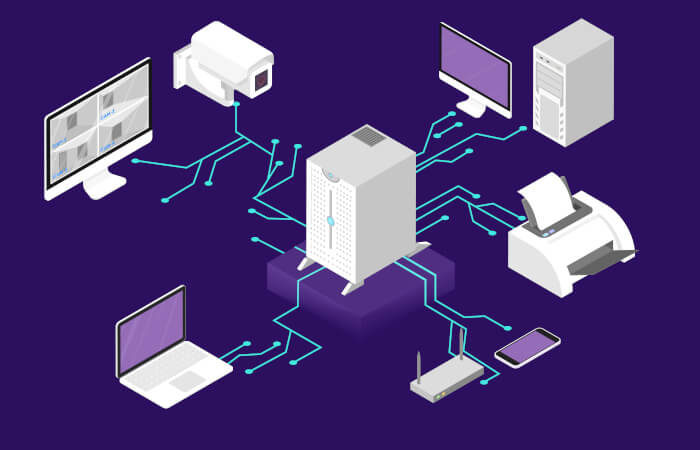OrangeFS (previously PVFS) is an open-source, multi-server scalable parallel file system targeted at production parallel computation environments.
It’s designed specifically to scale to very large numbers of clients and servers. The architecture is very modular, allowing for easy inclusion of new hardware support and new algorithms.
OrangeFS is now part of the Linux kernel as of version 4.6. As this version of the kernel becomes widely available, it will simplify the use of parallel storage by Linux applications through OrangeFS.
Features include:
- Client-server architecture.
- Excellent scalability and capacity.
- Majority of OrangeFS is POSIX-compliant C code that runs in user space.
- Handle objects, called dataspaces, that can have both byte-stream and key-value components.
- Provides a unified namespace, so that all files are accessible from a single mount point.
- Unique object-based file data transfer, allowing clients to work on objects without the need to handle underlying storage details, such as data blocks
- Ability to have unified data/metadata servers.
- Distribution of metadata across storage servers.
- Distribution of directory entry metadata.
- Diverse client access methods including Posix, MPI, Linux VFS, FUSE, Windows, WebDAV, S3, Hadoop and REST interfaces.
- Ability to configure storage parameters by directory or file, including stripe size, number of servers, and immutable file replication.
- Virtualized storage over any Linux file system as underlying local storage on each connected server.
- Replacement of Hadoop DFS using MapReduce extension and JNI – no modification of MapReduce code is needed.
- Works across heterogeneous architectures.
- Fault-tolerance.
- Provide ways to swap in new redundancy, availability, and stability techniques.
Website: www.orangefs.org
Support: Documentation, FAQ
Developer: Omnibond, Clemson University, Argonne National Laboratory and Community Members
License: GNU Lesser General Public License
OrangeFS is written in C. Learn C with our recommended free books and free tutorials.
| Popular series | |
|---|---|
| The largest compilation of the best free and open source software in the universe. Each article is supplied with a legendary ratings chart helping you to make informed decisions. | |
| Hundreds of in-depth reviews offering our unbiased and expert opinion on software. We offer helpful and impartial information. | |
| The Big List of Active Linux Distros is a large compilation of actively developed Linux distributions. | |
| Replace proprietary software with open source alternatives: Google, Microsoft, Apple, Adobe, IBM, Autodesk, Oracle, Atlassian, Corel, Cisco, Intuit, SAS, Progress, Salesforce, and Citrix | |
| Awesome Free Linux Games Tools showcases a series of tools that making gaming on Linux a more pleasurable experience. This is a new series. | |
| Machine Learning explores practical applications of machine learning and deep learning from a Linux perspective. We've written reviews of more than 40 self-hosted apps. All are free and open source. | |
| New to Linux? Read our Linux for Starters series. We start right at the basics and teach you everything you need to know to get started with Linux. | |
| Alternatives to popular CLI tools showcases essential tools that are modern replacements for core Linux utilities. | |
| Essential Linux system tools focuses on small, indispensable utilities, useful for system administrators as well as regular users. | |
| Linux utilities to maximise your productivity. Small, indispensable tools, useful for anyone running a Linux machine. | |
| Surveys popular streaming services from a Linux perspective: Amazon Music Unlimited, Myuzi, Spotify, Deezer, Tidal. | |
| Saving Money with Linux looks at how you can reduce your energy bills running Linux. | |
| Home computers became commonplace in the 1980s. Emulate home computers including the Commodore 64, Amiga, Atari ST, ZX81, Amstrad CPC, and ZX Spectrum. | |
| Now and Then examines how promising open source software fared over the years. It can be a bumpy ride. | |
| Linux at Home looks at a range of home activities where Linux can play its part, making the most of our time at home, keeping active and engaged. | |
| Linux Candy reveals the lighter side of Linux. Have some fun and escape from the daily drudgery. | |
| Getting Started with Docker helps you master Docker, a set of platform as a service products that delivers software in packages called containers. | |
| Best Free Android Apps. We showcase free Android apps that are definitely worth downloading. There's a strict eligibility criteria for inclusion in this series. | |
| These best free books accelerate your learning of every programming language. Learn a new language today! | |
| These free tutorials offer the perfect tonic to our free programming books series. | |
| Linux Around The World showcases usergroups that are relevant to Linux enthusiasts. Great ways to meet up with fellow enthusiasts. | |
| Stars and Stripes is an occasional series looking at the impact of Linux in the USA. | |
